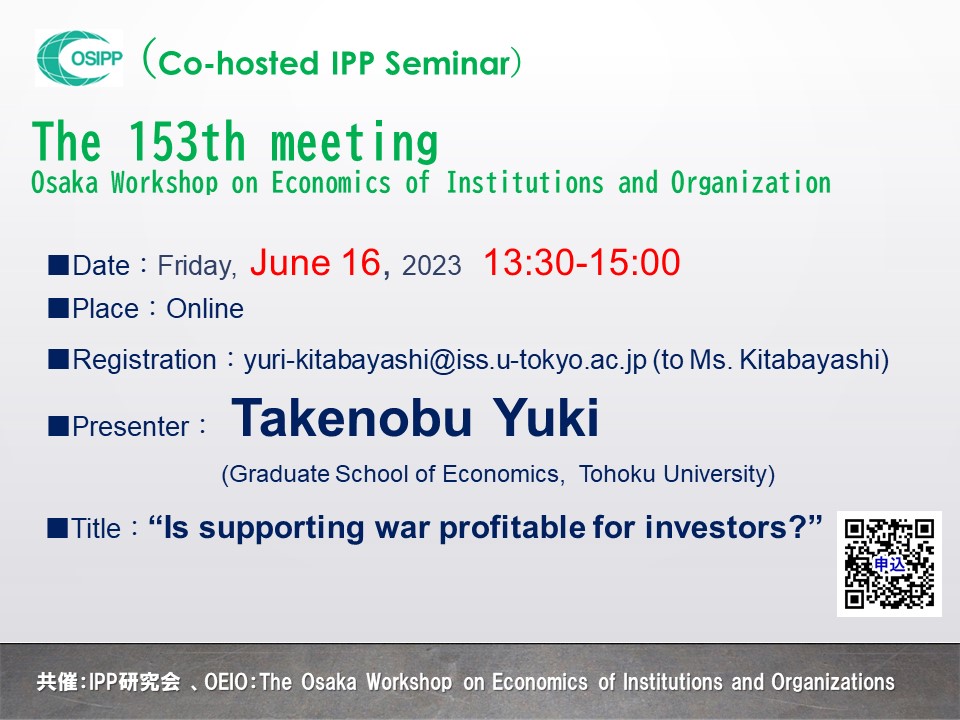
- Online events
- Pre-book only
The 153rd meeting jointly organized with International Public Policy Seminar
Intended for |
|
|---|---|
Date | 2023.6.16 Fri 13:30 - 15:00 |
Venue |
|
How to apply | Send an email to: yuri-kitabayashi@iss.u-tokyo.ac.jp (KITABAYASHI, Institute of Social Science, The University of Tokyo) |
Contact | KITABAYASHI, Institute of Social Science, The University of Tokyo |
The Osaka Workshop on Economics of Institutions and Organizations, OEIO, meets every month to exchange research ideas on institutional and organizational economics. Participants include both people specialized in theoretical research and those in empirical research. Topics of meetings might be about microeconomic theory, macroeconomic theory, or economic history..., whatever on institutional and organizational economics.
Presenter: Takenobu Yuki, Graduate School of Economics, Tohoku University
Title: ”Is supporting war profitable for investors?” Evidence from Tokyo Stock Exchange during Second Sino-Japanese War and Pacific War
Abstract:
In the conduct of war, resources must be allocated to military-related sectors. In World War II, the war was conducted under government control and command economies in many countries. On the other hand, it should be pointed out that in countries where the allocation of resources was mainly conducted by the market, the war was carried out in a manner that did not interfere with market mechanisms as much as possible. In particular, it is pointed out that in Japan, policies were implemented to maintain the functioning of the stock market and to attract funds to the military industry.
So, was it also in the interest of investors to invest in and hold stocks related to the conduct of the war? If so, then the war would have been economically beneficial not only to the government but also to the people. Thus, for the parties conducting the war, political pressure to end the war from within would not work, which could increase and prolong the scale of the war.
In this paper, we constructed a dataset of daily individual stocks available in the Japanese wartime period. Using that data set, we performed structural change tests to analyze the relationship between wartime events and stock price movements. We also calculated portfolios and analyzed whether the inflow of funds into military stocks was desirable for investors. Furthermore, we compared the results of this estimation with the actual portfolios of life insurance companies, which were leading institutional investors at the time.